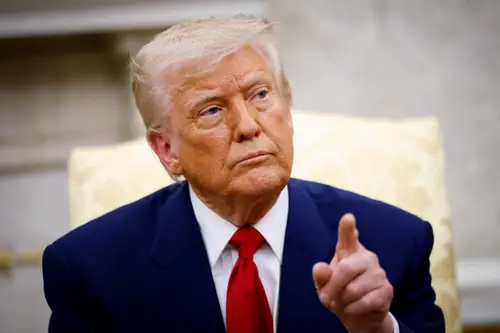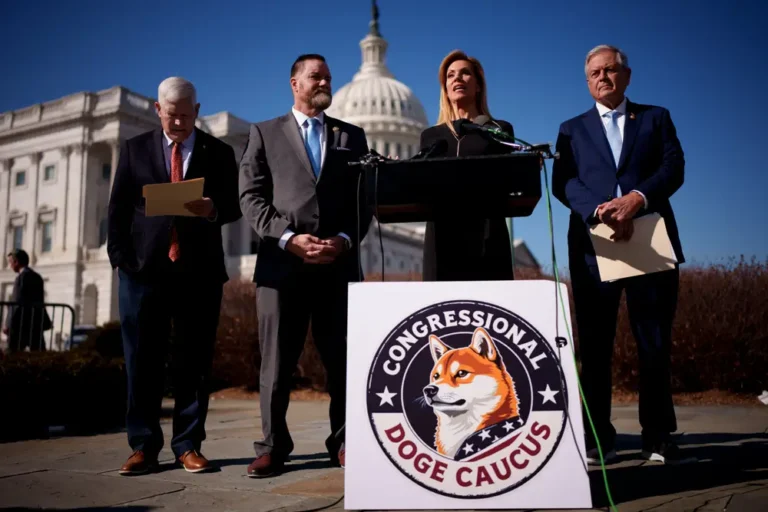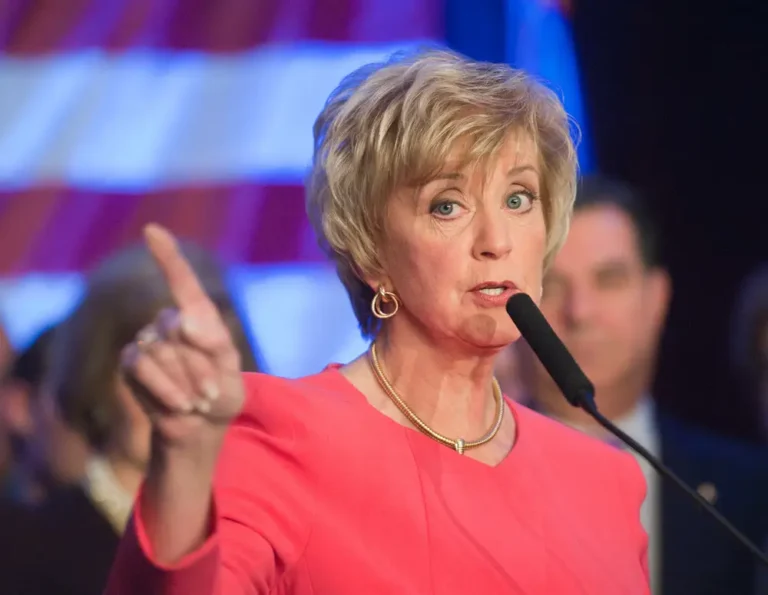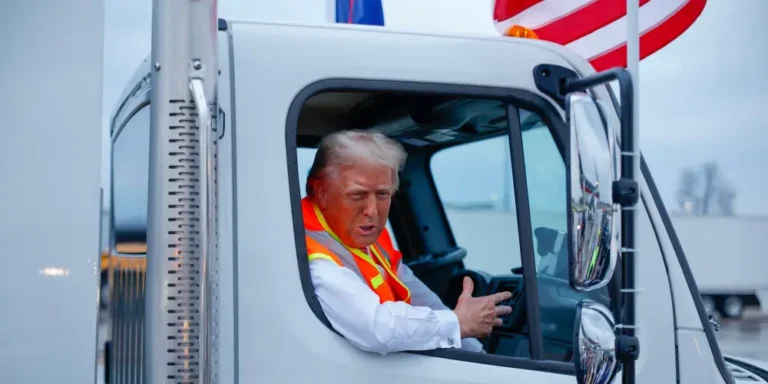7 key details from Elon Musk and Vivek Ramaswamy’s DOGE plan

Elon Musk and Vivek Ramaswamy are set to co-lead the Department of Department of Government Efficiency once President-elect Donald Trump takes office.
Elon Musk and Vivek Ramaswamy have outlined their vision for the Department of Government Efficiency in a lengthy op-ed, spelling out how the duo plan to slash government spending.
On Wednesday, Musk and Ramaswamy outlined their vision for DOGE, which Musk previously said would cut $2 trillion from the federal budget.
Their opinion piece, published in the Wall Street Journal, is lengthy and dense, filled with Supreme Court rulings and decades-old statutes. Here are the main takeaways.
DOGE will be staffed by ‘small-government crusaders’ and work with the Office of Management and Budget.
Since its inception, DOGE has existed as an agency outside of government rather than a department — this way, Musk and Ramaswamy aren’t government employees and don’t have to divest from their businesses.
The DOGE co-heads re-hash this point in their column, writing that they will “serve as outside volunteers, not federal officials or employees.” They are working with Trump’s transition team to organize “a lean team of small-government crusaders, including some of the sharpest technical and legal minds in America.” DOGE employees will work closely with the Office of Management and Budget, which prepares the president’s budget requests for Congress.
Musk and Ramaswamy will be DOGE’s main advisors and oversee three categories of reform: “regulatory rescissions, administrative reductions and cost savings.”
DOGE will turn to recent Supreme Court rulings as a guide.
Musk and Ramaswamy wrote that their goal for deep reform will be rooted in two Supreme Court rulings.
The pair cited West Virginia v. Environmental Protection Agency, a 2022 Supreme Court ruling in which the court restricted the agency’s ability to regulate carbon emissions, and Loper Bright v. Raimondo, a 2024 ruling where the court overturned Chevron v. Natural Resources Defense Council (1984). The Chevron decision dictated that federal courts should defer to federal agencies in their interpretation of statutes; in overturning it, the Supreme Court stripped agencies of significant power.
Musk and Ramaswamy said in the opinion piece that the rulings from the court point to regulations that “exceed the authority Congress has granted under the law.”
The pair said that rolling back a range of “illicit” regulations would create economic prosperity in the country. And they wrote that the move would be a major step in remedying what they deem to be “executive overreach.”
DOGE will rely heavily on executive action to pursue its cost-cutting agenda.
Musk and Ramaswamy make clear that they won’t aim to pass new laws in their roles, meaning they won’t have to rely on Congress.
According to their opinion piece, DOGE will work with legal experts working at government agencies to use their interpretation of the rulings to identify which regulations to cut. After determining which regulations are wasteful, DOGE will make their recommendations to Trump, who could then take executive action to “pause” certain rules and begin the process to review and reverse them.
DOGE also plans to go after the federal government’s procurement process, which agencies use to get goods and services. Musk and Ramaswamy write that many federal contracts haven’t been properly investigated and that broad audits of agencies “during a temporary suspension of payments would yield significant savings.”
Musk and Ramaswamy explain how they’ll reduce the size of the federal workforce.
Musk and Ramaswamy make it clear that by eliminating federal regulations, there should also be “mass head-count reductions across the federal bureaucracy.”
The pair stated that DOGE will work with agencies to identify the minimum number of staffers needed for departments to function and still maintain their effectiveness.
“Employees whose positions are eliminated deserve to be treated with respect, and DOGE’s goal is to help support their transition into the private sector,” they wrote. “The president can use existing laws to give them incentives for early retirement and to make voluntary severance payments to facilitate a graceful exit.”
And Musk and Ramaswamy poured cold water on pandemic-era work-from-home policies as they aim to reform the government’s finances.
“Requiring federal employees to come to the office five days a week would result in a wave of voluntary terminations that we welcome,” the pair wrote.
Musk and Ramaswamy plan to target public media and Planned Parenthood.
To fulfill its promise of saving taxpayer money through executive action, DOGE plans to “take aim at the $500 billion plus in annual federal expenditures that are unauthorized by Congress or being used in ways that Congress never intended.” Though Musk and Ramaswamy don’t detail all of the programs they hope to target, the two mention the Corporation for Public Broadcasting and Planned Parenthood, along with other “progressive groups.”
Congress created the CPB in 1967. It is the single biggest funding source for public radio, television, and online services, largely for local public media stations. Public Broadcasting Service and National Public Radio each receive some of their funding from the CPB.
Musk and Ramaswamy address critiques about spending goals and executive overreach.
Since DOGE was announced, critics have questioned whether Musk’s previously stated goal of cutting $2 trillion from the federal budget is feasible, particularly given their limited power without Congress. In 2024, federal spending reached $6.75 trillion, with a combined 45% of it going to health insurance programs, like Medicare, and Social Security.
Musk has a history of overcoming steep odds in the private sector. Both Tesla and SpaceX have survived near-financial ruin to become wildly successful, partly because Musk has bet on industries others deem too risky to touch.
The co-heads face the critiques head on, writing that any claims of executive overreach are unfounded. Instead, they say they will “be correcting the executive overreach of thousands of regulations promulgated by administrative fiat” by applying their Supreme Court interpretations. According to their stated logic, a future president would need to pass a law to reinstate any regulations that Trump scraps.
Critics have also pointed to the Impoundment Control Act of 1974 as a potential roadblock for the agency; the statute requires the president to spend funds that Congress has appropriated. Musk and Ramaswamy note that Trump has implied that the statute is unconstitutional and predict that the Supreme Court would agree. Regardless of the statute’s future, DOGE plans to move forward with its mission.
Musk and Ramaswamy argue that questions about entitlement programs like Medicare “deflects attention from the sheer magnitude of waste, fraud and abuse,” but don’t specifically address that critique otherwise.
DOGE will end by July 4, 2026.
Musk and Ramaswamy wrote that they expect to “prevail” in their fight to enact sweeping governmental reforms.
And they emphasized that it’s their objective for DOGE to be phased out by July 4, 2026.
“There is no better birthday gift to our nation on its 250th anniversary than to deliver a federal government that would make our Founders proud,” the DOGE co-heads wrote.
Representatives for Musk and Trump did not immediately respond to B-17’s request for comment; a representative for Ramaswamy declined the request.






